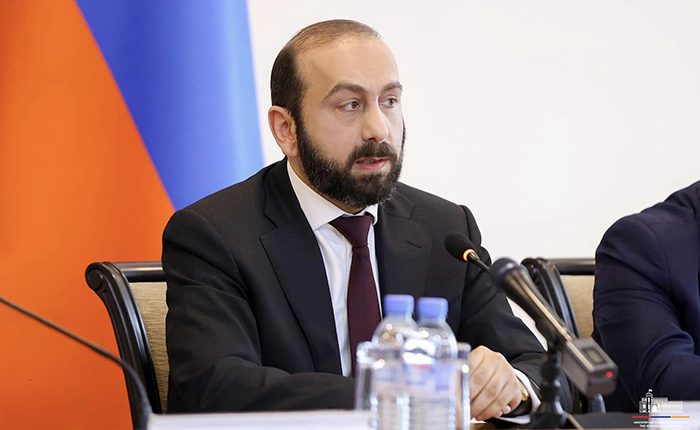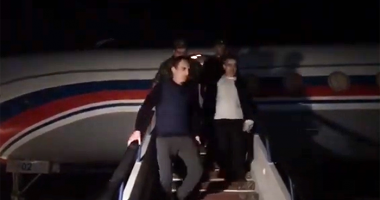YEREVAN — Armenia and Azerbaijan have reached several mutual agreements as part of their negotiations on a peace treaty, but they remain divided on two main issues, according to Foreign Minister Ararat Mirzoyan.
“We really have a historic opportunity to establish lasting peace in the South Caucasus. Armenia is committed to the peace agenda and approaches all issues constructively in negotiations. We have already reached a number of mutual agreements in our negotiations on the signing of a peace treaty. Unfortunately, there are two main issues where the visions of the parties are still far from each other,” Mirzoyan told Armenia’s Public Television late on Saturday.
He said the first sticking point concerned the mutual recognition of territorial integrity and the further border delimitation process, while the second was the vision of the unblocking of transport links and infrastructure in the region.
“We had agreed several times at the highest level, at least three or four times there were meetings where the parties agreed, reaffirmed the recognition of each other’s territorial integrity on the basis of the [1991] Alma-Ata Declaration and agreed that the border delimitation will take place on the basis of the Alma-Ata Declaration.
“It is also strange for me that when we try to reflect this agreement, to refer to this declaration in the context of territorial integrity and border delimitation in the draft treaty, we see reluctance on the part of Azerbaijan,” Mirzoyan said.
He expressed hope that in the near future the sides will be able to reach a stronger mutual understanding on this issue.
Commenting on the April 5 trilateral meeting in Brussels between European Commission President Ursula von der Leyen, U.S. Secretary of State Antony Blinken, and Armenian Prime Minister Nikol Pashinyan, Mirzoyan said that no military component was discussed there.
As a result of the meeting, the European Union and the United States unveiled an aid package to Armenia to show support for its efforts to deepen ties with the West.
Mirzoyan stressed that the statement issued by the parties after the meeting referred to no military component.
“However, increasing the resilience of Armenia eventually becomes the resilience of the security sphere, and we plan in the future to interact more closely with the European Union and deepen our bilateral relations, for which there are corresponding directions,” Mirzoyan said.










